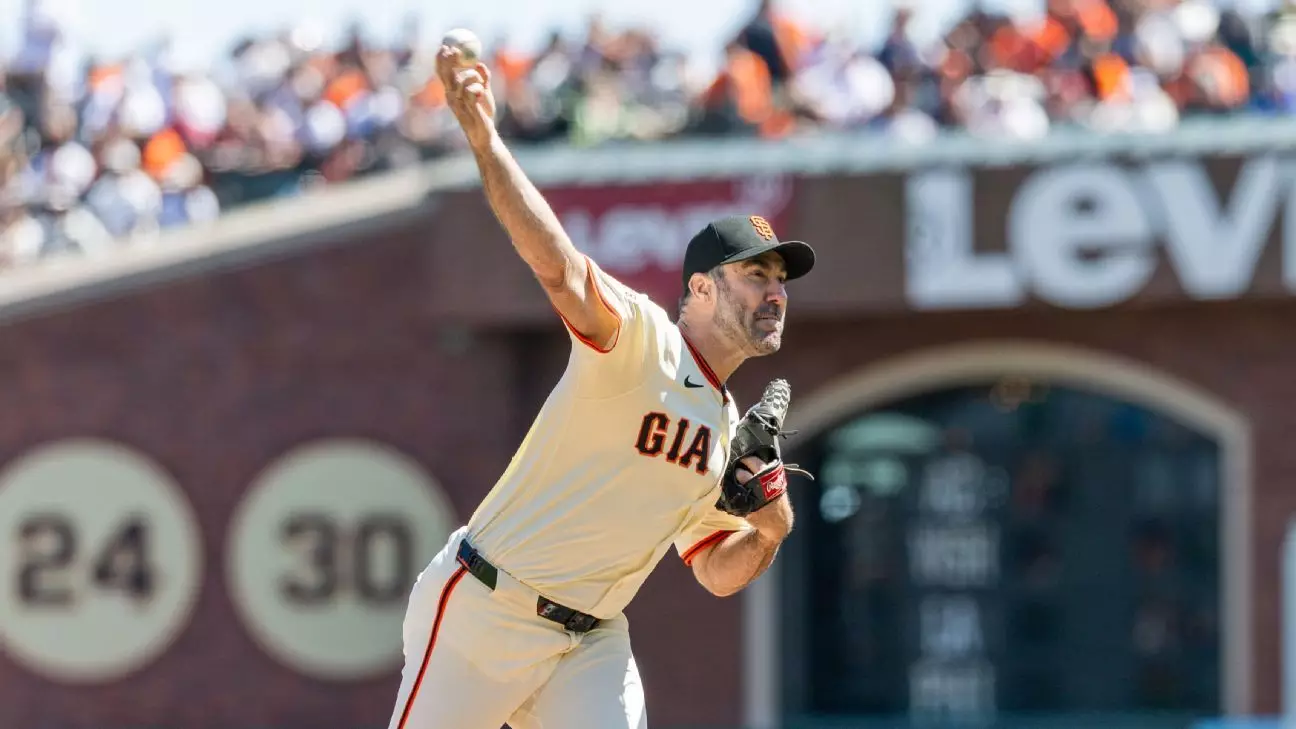Injuries, a natural adversary for professional athletes, have struck again, underscoring the unpredictable nature of sports careers. The San Francisco Giants are facing this reality with the news of Justin Verlander’s right pectoral injury, leading to his placement on the 15-day injured list. This decision, articulated by manager Bob Melvin, arrives after a disappointing 8-4 defeat to the Kansas City Royals, amplifying the weight of Verlander’s absence as the Giants continue their quest for success.
The Decision-Making Process
In the world of competitive baseball, decisions regarding player health must balance ambition and prudence. After a side session on Wednesday revealed limitations in Verlander’s performance, it became apparent that he wouldn’t be ready to start against the Washington Nationals. Verlander’s willingness to follow medical advice reveals the often-overlooked wisdom of giving oneself a break to recover adequately. “They’re saying, ‘give yourself a blow,'” he articulated—a mantra that many athletes often find hard to embrace amidst mounting pressure to perform.
As the Giants weave through a challenging section of their schedule, the expectation is clear: the hope is that Verlander will be sidelined for only a couple of starts. However, the pressure on athletes to constantly deliver can impair their judgment. Despite Verlander’s setback, Melvin’s comments reflect optimism, which speaks to the culture of resilience that defines the Giants.
Understanding the Complexity of the Injury
An essential aspect of this situation is the nerve irritation that Verlander is experiencing in his pectoral muscle. This condition presents unique challenges, as the intricacies of muscle and nerve interactions can significantly impact an athlete’s performance. Verlander’s assertion that this injury is not connected to the neck issues he dealt with during his tenure with the Houston Astros is crucial; the psychological weight of past injuries often looms large over players.
Verlander’s current struggle cannot be diminished by statistics alone. The veteran pitcher currently holds an 0-3 record with a 4.33 ERA, battling through mechanical issues and a troubling lack of command that manifested in an alarming five walks in his last outing. It is unsettling to see a sublime talent like Verlander grapple with these challenges, yet it speaks to a broader reality faced by athletes: no player is immune to the physical toll of the game and the intricacies of performance.
A Legacy Under the Spotlight
With two decades in the big leagues, Verlander’s resilience is a beacon within a landscape often riddled with uncertainty. His career statistics—262 wins, a 3.31 ERA, and multiple accolades—underscore a legacy that transcends individual seasons. Yet, the current predicament reflects a poignant truth: even legends must confront their vulnerabilities.
As the Giants contemplate who will start in Verlander’s stead, the team must remain vigilant. While Verlander’s injury represents a setback, the narrative of his career is one of persistence, adaptation, and the unyielding drive to succeed. For fans and analysts alike, this moment serves as a reminder that the essence of sports lies in both the triumphs and tribulations that athletes endure. Though setbacks are disheartening, they also remind us of the greatness that can be achieved through resilience and determination.


Leave a Reply